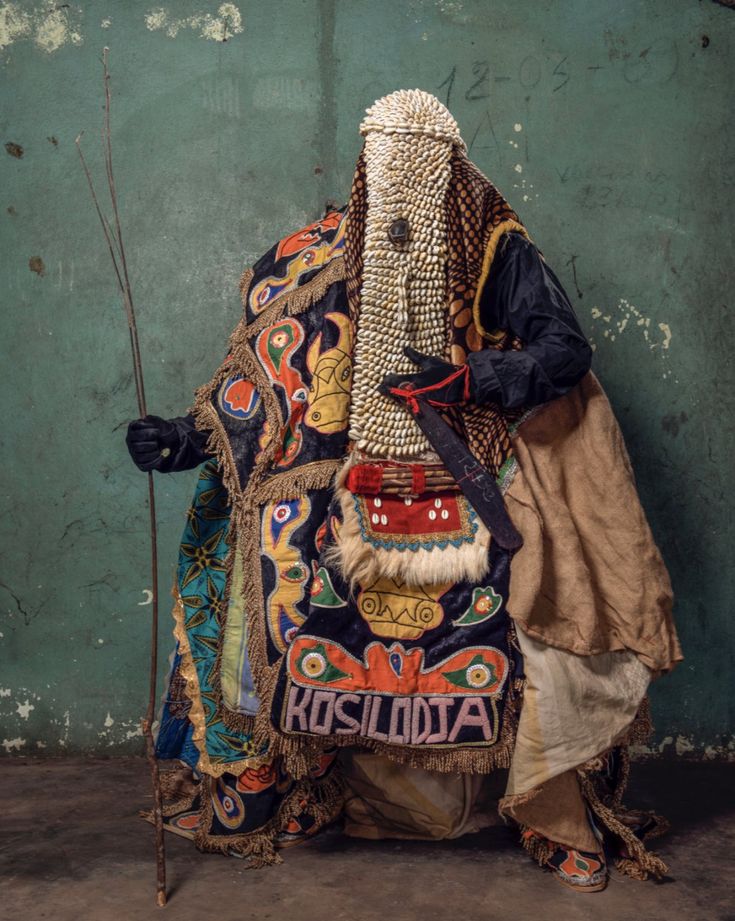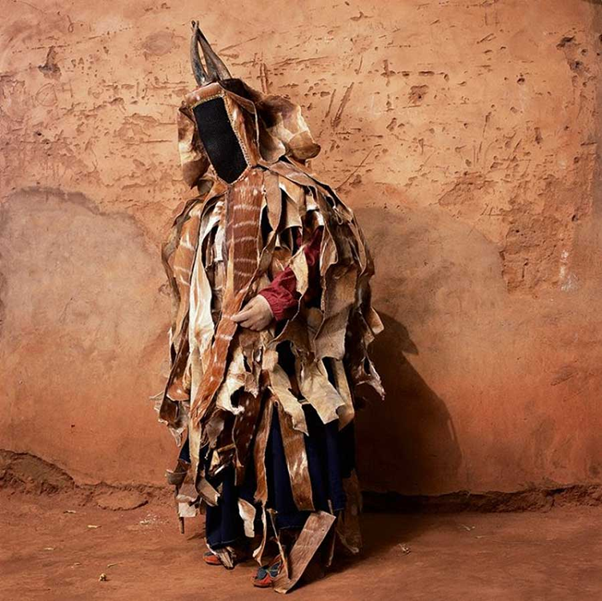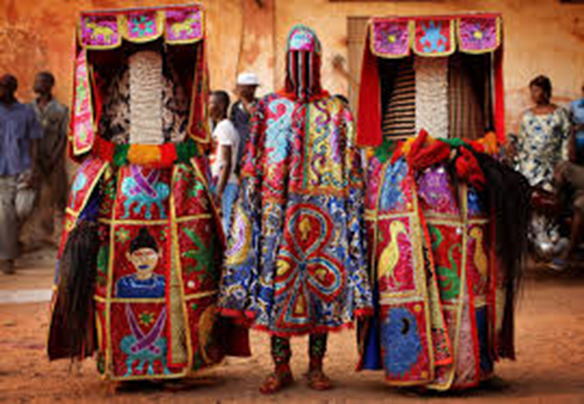Unmasking Our Reality: Identity in a Curated World

The Mask: Unveiling the Masquerade of Modern Life
“We all wear masks, and the time comes when we cannot remove them without removing some of our own skin.” — André Berthiaume

In the streets of Lagos, amidst the chaotic rhythm of honking danfos and hustling vendors, a figure emerges cloaked in a vibrant, haunting costume. The masquerade—a sacred entity in African tradition—dances through the throngs, embodying spirits that have walked the earth for centuries. The scene is both terrifying and mesmerizing, a reminder of the thin veil between the spiritual and the tangible. But what if this ancient tradition, deeply rooted in African culture, is more relevant to our modern lives than we dare to acknowledge?
What if we, too, are all masquerades in our daily lives—hiding, performing, and shielding our true selves from the world?
The Ancient Mask: A Dance Between Worlds
The masquerade, or “Egungun” as known in the Yoruba culture of Nigeria, is a powerful spiritual entity. It represents ancestral spirits, revered and feared for their ability to bridge the gap between the living and the dead. The masquerade’s mask is not merely a costume; it is a vessel, a conduit through which spirits communicate, protect, and sometimes chastise the living. Across Africa, from the Dogon of Mali to the Fang of Gabon, masquerades embody complex narratives—rituals of initiation, rites of passage, and symbols of social order.

But beyond the African continent, the mask has transcended its traditional confines, becoming a global symbol of duality, deception, and identity. In the U.S., UK, Asia, and the Middle East, the mask is more metaphorical, yet its power remains potent. We see it in the carefully curated lives on social media, in the corporate boardrooms, and even within the intimate walls of our homes. The masquerade has become a universal phenomenon—an inescapable part of the human condition.
Masks in the Modern World: The Performance of Everyday Life
In the digital age, the mask is not just a physical object but a digital facade. On TikTok, Instagram, and Facebook, people present versions of themselves that are often far removed from reality. The allure of likes, shares, and followers has turned our lives into a performance, where authenticity is sacrificed on the altar of social approval. The question we must ask ourselves is: Are we who we really say we are, or are we all living different lifestyles in different worlds?

In Japan, the concept of “honne” and “tatemae” captures this duality perfectly. “Honne” refers to a person’s true feelings and desires, while “tatemae” represents the behavior one displays in public, often to conform to societal expectations. This dichotomy is not unique to Japan but is a global phenomenon. Whether in the U.S., where “keeping up appearances” is a cultural mandate, or in the Middle East, where societal pressures dictate public behavior, the mask is a universal truth.
But what happens when the mask becomes the face? When the performance overtakes reality, and the boundary between who we are and who we pretend to be blurs beyond recognition?
The Ethics of the Mask: A Dance with Deception
The masquerade raises ethical questions that are as old as humanity itself. Is it wrong to wear a mask? To hide one’s true self from the world? In many African cultures, the masquerade is a necessary part of social order, a way to maintain harmony and balance. Yet, in modern society, the mask often becomes a tool of deception, a way to manipulate and control.
In the corporate world, this is particularly evident. Brands, like people, wear masks—glossy, polished facades designed to project an image that may or may not align with reality. The recent surge in corporate social responsibility (CSR) campaigns, for example, has seen companies donning the mask of ethics and morality. But how much of it is genuine, and how much is mere performance?
A 2022 study by Edelman revealed that 58% of consumers believe that most brands are using social issues as a marketing ploy rather than out of genuine concern. The mask of corporate virtue, it seems, is slipping, revealing the profit-driven motives beneath.
The Masquerade of Pop Culture: A Gritty Showmanship
Pop culture, too, is a masquerade—a dazzling, gritty spectacle that hides the raw, often uncomfortable truths of society. The glitz and glamor of Hollywood, the pulsating beats of Afrobeats, and the viral trends on social media all serve as masks, distracting us from the realities that lurk beneath.
In Africa, the rise of Afrobeats is a perfect example of this duality. While the genre has catapulted African culture onto the global stage, it also masks the struggles of the continent—poverty, corruption, and inequality. The vibrant, infectious rhythms of artists like Burna Boy and Wizkid offer a seductive escape, but they also raise critical questions. Is the global embrace of Afrobeats a genuine appreciation of African culture, or is it another instance of cultural appropriation?

In the Middle East, pop culture is often used as a mask to obscure political and social tensions. The lavish lifestyles displayed in Dubai’s influencer culture, for example, mask the underlying issues of human rights abuses and labor exploitation. The mask, in this context, becomes a tool of distraction—a way to keep the public entertained and docile while the real power dynamics remain hidden.
Unmasking the Truth: Who Are We, Really?
As we peel back the layers of the masquerade, we are confronted with uncomfortable truths about ourselves and the world we live in. The mask, whether worn by an individual, a brand, or a society, is both a shield and a weapon—a way to protect ourselves from scrutiny, but also a way to deceive others.
In the end, the question is not whether we wear masks, but why. Are we hiding from the world, or from ourselves? Are we protecting our true selves, or are we afraid of what we might find beneath the mask?
As we navigate the complexities of modern life, it is time to confront these questions head-on. The masquerade, after all, is not just a cultural phenomenon—it is a reflection of the human condition. And until we unmask the truth, we will continue to live in a world where appearances are everything, and reality is just another performance.
The Next Act: The Mask in Marketing and Branding
In the next installments of this series, we will explore how the mask has infiltrated the world of marketing and branding. We will examine how brands are using pop culture as a mask to connect with consumers, and how this trend is shaping the future of business strategy. From Afrocentric thinking to the commodification of culture, we will uncover the ways in which the mask is being used to glamorize and popularize brands in the modern world.
But for now, let us sit with the uncomfortable truth: We all wear masks. The question is, what are we hiding from, and why?
As we peel back the layers, we may find that the mask is not just a cover—it is a mirror, reflecting our deepest fears, desires, and insecurities. And perhaps, in the end, the most terrifying truth is not what lies behind the mask, but the realization that we may never truly be able to take it off.
The masquerade continues. Are you ready to unmask the truth?